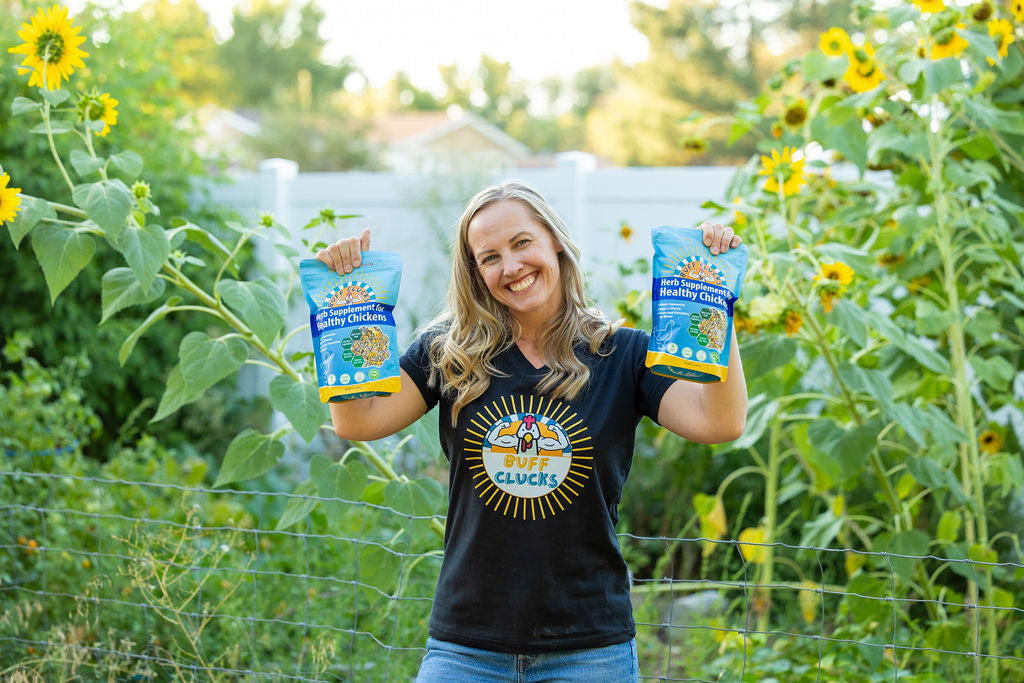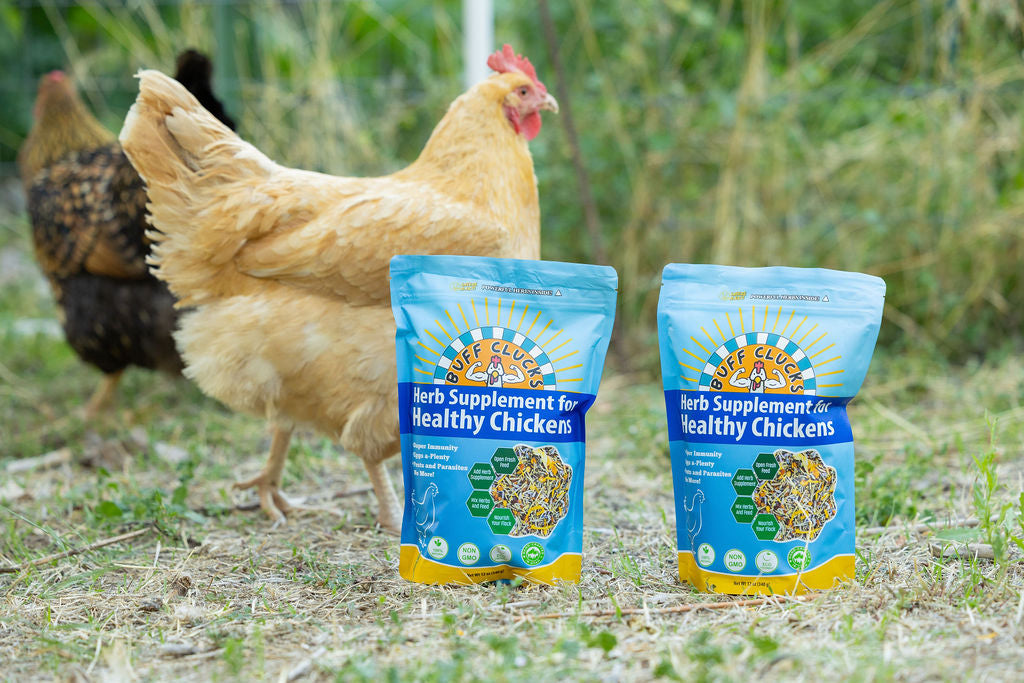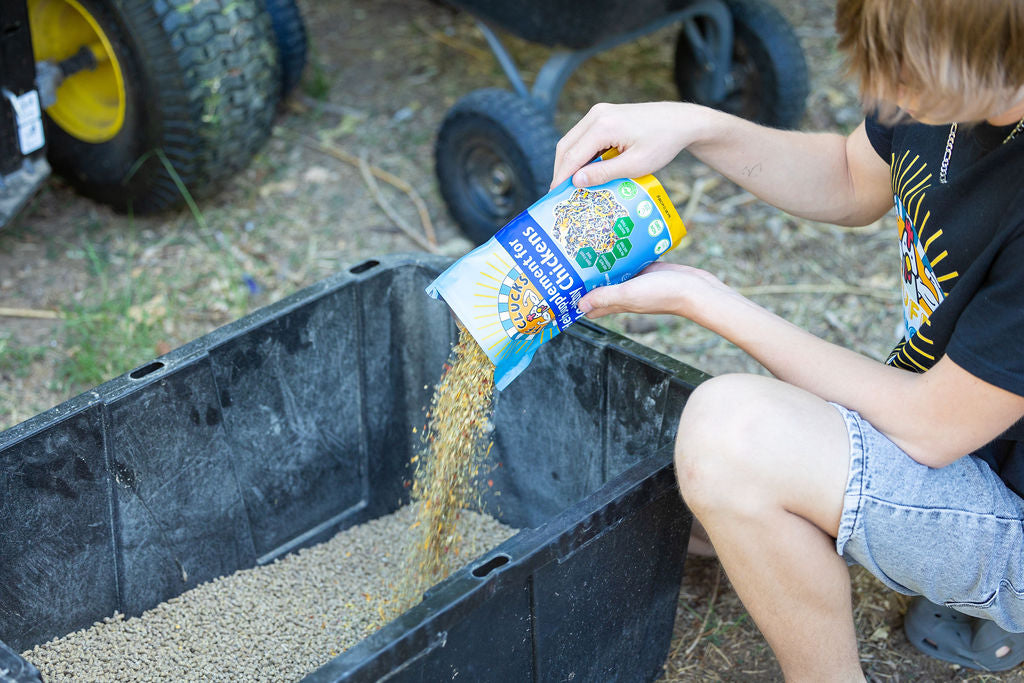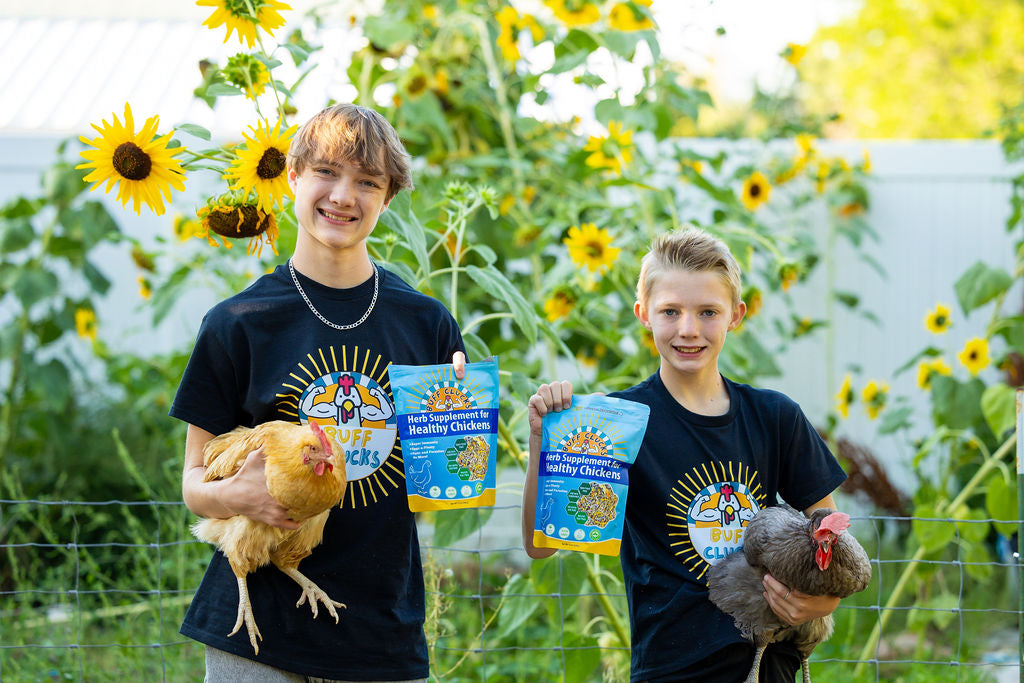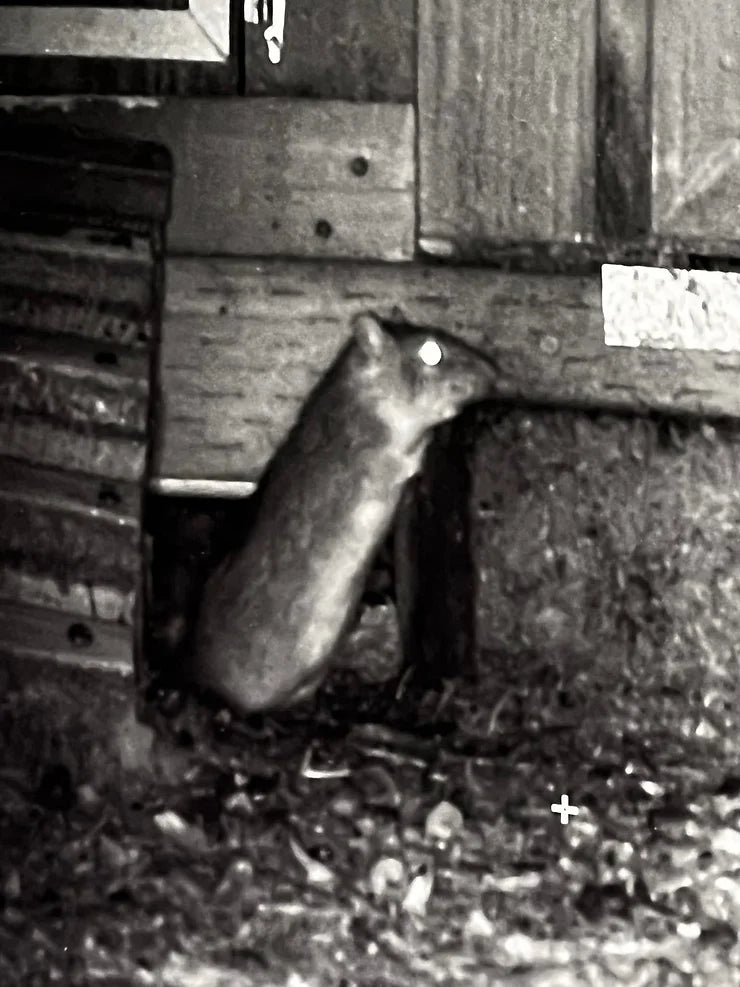
Are There Natural Ways to Control Rodents in Chicken Coops?
Share
A common problem for all backyard chicken owners is how to deal with rodents in the chicken coop! Navigating the world of backyard chicken-keeping can be an egg-citing adventure, but it's not without its share of pecky little problems—top of the list? Rodent gatecrashers! Yes, we're talking about those furry freeloaders who think your chicken coop is their personal all-you-can-eat buffet. In addition to lice and mites, backyard chicken owners must be prepared to ward off rodents.

Mice and rats, the uninvited guests at the poultry party, are more than just a nuisance; they're party poopers. And they can risk the health of your clucky companions and turn your coop into a fixer-upper project. But fear not, fellow poultry pals, we can tackle these rodents in the most natural and chicken-friendly ways possible. After all, every chicken deserves a safe coop to roost in, free from the pitter-patter of tiny, uninvited feet!
Before we dive beak-first into solving our rodent riddle, let’s get to know our uninvited guests a bit better. The main culprits crashing our coop parties are none other than mice and rats. These furry gatecrashers are not just looking for a quick snack; they’re in for the long haul, drawn in by the all-you-can-eat buffet of feed, the five-star accommodation (aka your chicken coop), and the VIP access to water.
Why Do Rodents Love to be in Chicken Coops?
-
All-You-Can-Eat Buffet: Just like us at a Sunday brunch, rodents can’t resist the endless supply of chicken feed. They’re particularly fond of the grains and seeds, making your coop the hottest spot in town for a midnight feast.
-
Five-Star Accommodation: Your coop, with its nooks, crannies, and cozy bedding, offers luxury living for these pests. It's like a fancy hotel that they never want to leave!
-
VIP Water Access: And what’s a feast without something to wash it down with? The water you lovingly provide for your chickens also quenches the thirst of these freeloaders.
The Party Poopers: Risks Posed by Rodents in the Chicken Coop
-
Health Hazards: Rodents are notorious for carrying diseases, which can be a real party pooper for your chickens’ health. From salmonella to parasites, these pests can turn your coop from a haven into a hazard.
-
Damage Control: These critters have a knack for interior design—except their idea of redecorating involves gnawing on coop structures, insulation, and wiring, leading to potentially egg-spensive repairs.
-
Food Theft: Let’s not forget the main reason they came to the party: the food! Rodents can consume or contaminate significant amounts of chicken feed, leading to higher feed costs and unhappy hens.
Understanding the why behind our rodent problem is the first step to reclaiming our coops and keeping our feathered friends safe and sound. With a little know-how and some clever strategies, we can make our chicken coops the least appealing party spot on the block for these furry freeloaders.

Party Prevention - Keeping the Rodents at Bay
Before we even think about rolling out the unwelcome mat for our furry party crashers, let’s talk about the best way to keep the festivities rodent-free: prevention. It's all about making your coop as uninviting as possible to those looking for a free peck... I mean, a free meal.
Lock Down the Buffet: Secure Feed Storage
-
Airtight Moves: Invest in rodent-proof containers for your chicken feed. Think heavy-duty metal or thick plastic bins with tight-fitting lids. It’s like putting a lock on the fridge before a diet - if they can’t get in, they can’t indulge.
-
Clean Plate Club: After your chickens have finished dining, make sure to clean up any spilled feed. It’s the crumbs and leftovers that often keep the rodent rave going.
The Clean Coop Credo: Maintain Cleanliness and Reduce Clutter
-
Spick and Span: A clean coop isn’t just for your chickens’ health and happiness; it’s a major buzzkill for rodents. Regular cleaning reduces the hidden snacks and comfy nesting materials that rodents love.
-
Declutter Duty: Keep the area around the coop clear of debris, tall grass, and unused equipment. Less clutter means fewer places for rodents to hide and plan their next coop coup.
Fortify the Fortress: Regular Inspections and Repairs
-
Bouncer at the Door: Regularly inspect your coop for any signs of attempted break-ins. Look for gnaw marks, droppings, or tracks. Keeping an eye out means you can act fast to block their entry.
-
Seal the Deal: Repair any holes or gaps in the coop walls, floor, or around doors and windows. A gap as small as a quarter is like rolling out the red carpet for mice. Use hardware cloth or metal sheeting for a rodent-resistant fix.
By implementing these preventative measures, you’re not just avoiding the nuisance of rodents; you’re investing in the long-term health and safety of your chicken coop party. Think of it as the ultimate party planning - where the goal is to keep the guest list exclusive to your feathered friends.
Harnessing Herbs: A Natural Shield Against Rodents in the Chicken Coop
In the world of chicken keeping, finding natural, effective ways to maintain a harmonious coop is always top of mind. One innovative strategy that’s been making waves is the use of herbal supplements—not just for the health benefits they offer our feathered friends, but also for their unexpected advantage in the battle against rodents.
The Power of Herbs
-
Dual-Purpose Delight: Imagine a supplement that chickens love, which also naturally keeps rodents at bay. Certain herbs, known for their potent aromas and flavors, are less than appealing to the sensitive noses of mice and rats. It's this unique characteristic that makes herbal supplements a clever addition to any chicken keeper’s arsenal. Specifically, red pepper flakes or cayenne offend the taste buds of rats and mice, while chickens can't taste the spice at all!
-
Health Meets Harmony: Beyond the rodent-repelling properties, these herbal blends are packed with benefits for your chickens. From boosting immune systems to promoting calmness within the flock, the right mix can transform your coop into a haven of health and tranquility.
Incorporating Herbal Strategies
-
Feeding with Finesse: Mixing a carefully selected herbal supplement into your chickens' feed is a seamless way to introduce these benefits into their diet. The chickens remain oblivious to the spicy undertones that drive rodents away, enjoying their meals while creating an invisible barrier against pests.
-
Strategic Sprinkling: Applying the herbal blend directly within the coop—around bedding areas, nesting boxes, and potential entry points—acts as a deterrent to rodents, keeping them from encroaching on your chickens’ space. This method works double duty, keeping the coop smelling fresh and reducing the appeal for unwanted guests.
Herbs: A Natural Choice for Rodent Control
The movement towards using herbal supplements reflects a broader trend of seeking out natural, sustainable solutions for managing livestock and pets. While the idea is gaining traction, it's rooted in the understanding that our approach to care can be both gentle on the earth and effective in protecting our animals.
Backyard Chicken Coops: Natural Rodent Control Strategies
With a firm understanding of why rodents find chicken coops irresistible and armed with preventative measures to keep them at bay, let’s dive deeper into natural strategies for controlling these unwelcome guests. Beyond the clever use of herbs, there are several environmentally friendly and chicken-safe methods to ensure your coop remains a no-rodent zone.
Physical Barriers and Modifications
-
Fortress Foundations: Start by ensuring the coop itself is impenetrable. Use hardware cloth (not chicken wire, as rodents can squeeze through its larger openings) to secure all windows, vents, and other openings. A solid base, possibly extending underground, can prevent diggers like rats from making their way in.
-
Elevate Expectations: Elevating the coop off the ground can deter rodents, making it harder for them to gain access and find shelter. This also improves overall coop hygiene, a win-win for you and your flock.
Biological Controls
-
Predator Partnership: Embrace the natural predator-prey relationship by encouraging the presence of rodents’ natural enemies. Barn owls, for instance, are excellent at controlling rodent populations. Installing owl boxes near the coop can invite these nocturnal hunters to patrol your area. Similarly, a well-trained farm cat can be a formidable deterrent to rodents, though their presence should be managed carefully to ensure the safety of your chickens.
-
Guinea Fowl Guards: Consider adding guinea fowl to your flock. These birds are known for their voracious appetite for insects and small rodents, acting as a natural pest control service while integrating with your chickens.
Environmental Management
-
Biodiversity Boost: Creating a balanced ecosystem around your coop can help control rodents naturally. Encourage biodiversity by planting a variety of plants and providing habitats for predatory animals. A diverse environment can reduce the attractiveness of your coop to rodents by offering them alternative habitats away from your chickens.
-
Repellant Plants: In addition to the herbs mentioned previously, consider landscaping with plants known to repel rodents, such as marigolds, daffodils, and garlic around the coop. These plants can add beauty to your garden while serving a functional purpose in rodent control.
Monitoring and Adaptive Management
-
Vigilant Eye: Regularly inspect your coop and surrounding area for signs of rodent activity. This includes looking for droppings, gnaw marks, or tracks. Early detection is key to preventing a full-blown infestation.
-
Flexible Strategies: Be prepared to adapt your approach. Natural rodent control is an ongoing process that may require tweaking and experimentation. What works one season may need adjustment the next. Stay open to trying new methods and combinations of strategies to find what works best for your unique situation.
By integrating these natural rodent control strategies into your chicken-keeping practices, you're not just protecting your coop; you're investing in the health and happiness of your flock. A multi-faceted approach that combines prevention with active management. This method can help you maintain a balanced, healthy environment that supports your chickens while deterring rodents naturally.

Rodents No Longer Rule the Roost
The challenge of managing unwelcome rodents in our coops can often feel like an uphill battle. However, there are numerous natural strategies at our disposal to keep pesky intruders at bay. And also enhance the overall well-being of our feathered friends. In summary, try the preventative power of secure feed storage and coop cleanliness. Act now with the strategic use of herbs and the incorporation of physical and biological controls. Each method offers a piece of the puzzle in creating a harmonious, rodent-free environment for our chickens.
These natural approaches not only align with a more sustainable and eco-friendly ethos but also fosters a healthier living space for both poultry and keeper. The key to success lies in vigilance, adaptation, and a holistic understanding of the ecosystem surrounding our chicken coops. Remain attentive to your environment and open to adjusting your strategies as needed. This is how we can ensure a thriving coop that is both productive and protected.






